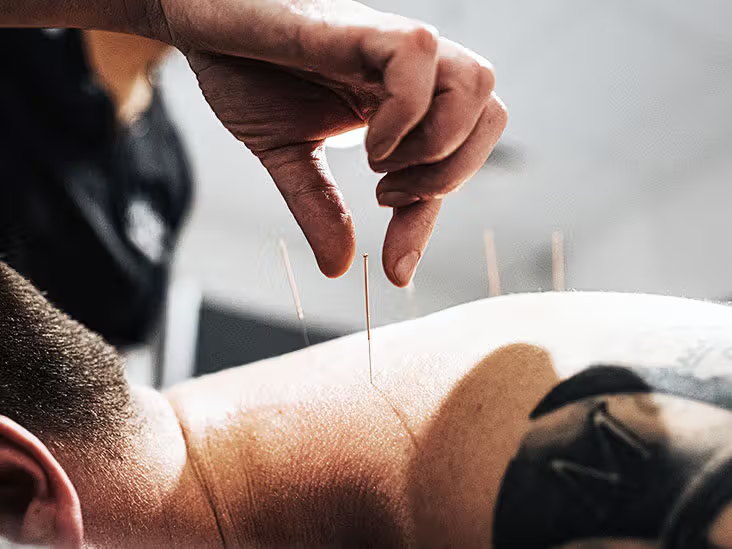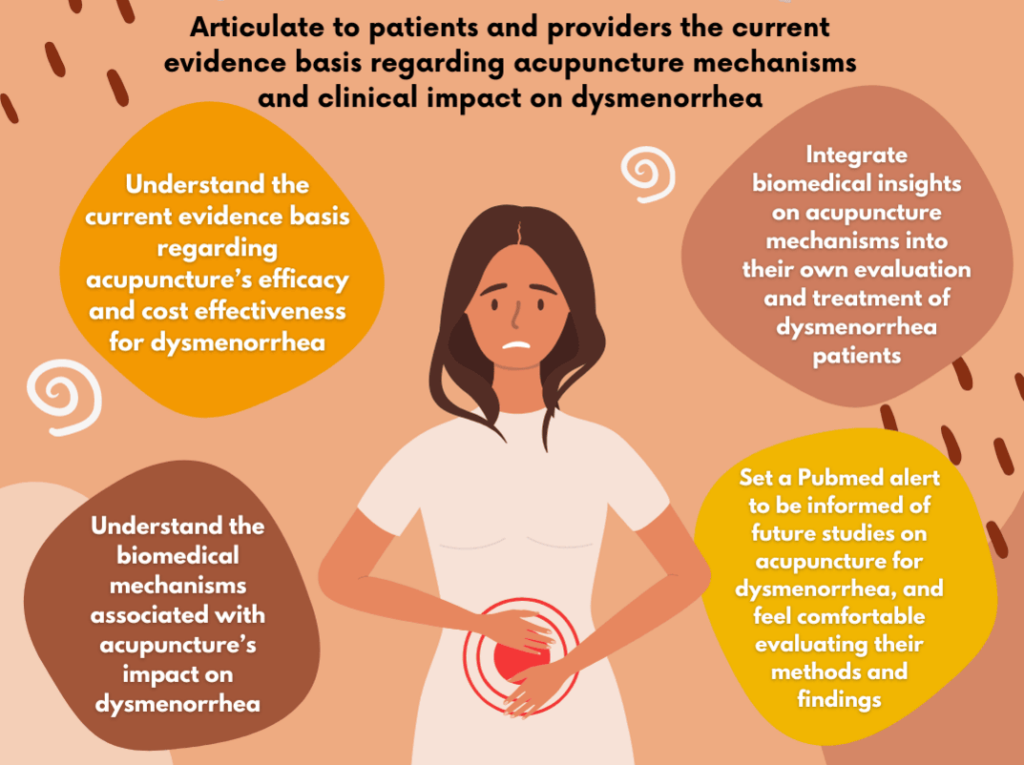
In recent times a particular form of ancient Chinese Medicine known as Acupuncture has been gaining popularity as a treatment for various ailments. This needle based therapy has helped many people for ages. However, do remember that the needle insertion in different parts of the body in this therapy can have side-effects in some people.
What Are the Common Side Effects of Acupuncture?
Common side effects of acupuncture include mild soreness, bruising, or slight bleeding at the needle sites. Some people may also experience fatigue, dizziness, or emotional release after treatment, but these effects are typically short-lived and mild.
Among the most common side effects of acupuncture are soreness or mild pain at the needle insertion points. Such discomfort disappears within one or two days after a therapy session.
In some cases small bruises may develop where the needles have been inserted. These marks usually last for only a few days and there is almost no damage in most instances. Ideally, individuals who have sensitive skin types and those taking anticoagulants should be cautious with acupuncture.
There are times when an individual might feel tired or even fatigued after having had an acupuncture session done on them. Such conditions last for several hours up to one day at most.
A few individuals might experience dizziness before or during an acupuncture session. Typically, this effect is caused by anxiety or lying still for long periods of time. Hence, one should slowly rise from the couch after receiving the treatment.
Sometimes emotions can be stimulated by acupuncture. Occasionally people may cry, feel anxious, or have trouble controlling their temper just minutes after being treated through this practice.
What Are Some Less Observed Adverse Reactions of Acupuncture?
Less observed adverse reactions of acupuncture include infections from unsterilized needles, nerve damage, or punctured organs. Rarely, some people may experience allergic reactions to the materials used in needles or feel significant discomfort during or after the session.
In some circumstances, a few patients may feel mild nausea during or after acupuncture. This side effect usually goes away without treatment. It is important to have a light meal and drink enough water before undergoing acupuncture.
Acupuncture can make you pass out, although this happens rarely. It can happen due to strained nerves, an empty stomach, or lack of water in your system. Practitioners should be on the lookout for signs of fainting as they can take necessary steps to prevent it.
Sometimes, people will experience a slight rash on the skin or suffer from itching at the needle insertion sites. Often, this response is due to being allergic to either the needle material or the disinfectant used on it at that time. You should notify him/her if you have allergies.
There are rare cases when patients experience pain relief after acupuncture has temporarily intensified their symptoms. Practitioners refer to this as a healing crisis. Contact your practitioner if this pain persists or worsens over time.
What Are Some Serious Rare Side Effects?

Serious rare side effects of acupuncture include organ puncture, such as a lung collapse (pneumothorax), and severe infections if sterile techniques are not used. In extremely rare cases, nerve damage or adverse reactions to needle materials may occur.
Infections only occur when sterile needles are not used to perform Acupuncture. However even then they are extremely rare in nature occurring only around needle sites. Hence a reliable acupuncturist employs single use needles under sterile conditions.
Organ damage following the wrong insertion at a wrong angle or too deep in some occasions can be associated with a minimal risk of acupuncture needles harming internal organs. The risk of this kind of problem occurring reduces as long as one seeks treatment from an experienced and licensed practitioner.
Although very uncommon, acupuncture might pose the risk of causing nerve damage. This can lead to temporary or, in rare cases, persistent numbness or tingling in the affected area.
It is rare for acupuncture needles to puncture the lung, causing its collapse. Acupuncture, if done improperly, may cause a life-threatening condition that necessitates immediate medical help.
When should acupuncture be avoided?
Acupuncture should be avoided if you have a bleeding disorder, are on blood thinners, have a pacemaker, or are pregnant (in certain cases). It’s also best to avoid it if you’re severely immunocompromised or have a recent injury.
People with medical Conditions such as Hemophilia, or take blood thinners. It should be avoided in case of infections, especially if there is an abscess at the acupuncture point.
Some specific populations like those going through a pregnancy should avoid it as there are several needling points that can induce labor. In those with pacemakers electro-acupuncture interferes with the functioning of pacemakers.
Different situational factors like recent surgery might make you suitable for Acupuncture. Avoid needle insertion near surgical incisions until complete healing has occurred. In case of severe Illness consult a conventional medical practitioner in case of an acute or severe illness.
What Factors That May Increase Acupuncture Side Effects?
Factors that may increase acupuncture side effects include using non-sterile needles, having a compromised immune system, taking blood thinners, or being pregnant. Additionally, improper technique or poor practitioner experience can also raise the risk of adverse reactions.
Unskilled and nonprofessional acupuncturists always pose risks regarding side effects associated with this treatment. One ought to go for qualified acupuncturists who have been licensed by professional bodies like FDA.
Some health conditions are more likely than others to result in complications from acupuncture. For instance, patients suffering from blood clotting abnormalities or those on anticoagulant medication have enhanced possibilities of bruising or bleeding.
While Acupuncture is usually safe during pregnancy if performed by an unskilled practitioner, it can pose serious risks. Individuals with a weak immune system may be at a higher risk of getting infection from acupuncture.
What are the signs that acupuncture is effective?

Signs that acupuncture is effective include reduced pain, improved range of motion, better sleep, and enhanced mood. You may also notice overall better energy levels and symptom relief. These positive changes usually indicate that the treatment is working.
Stinging, warmth, or pressure at the needle insertion point is a sign of Acupuncture working. One should get a feeling of peace or relaxation during or after the treatment.
Acupuncture should result in diminished pain intensity. This treatment results in better motion or function in the affected area.
Acupuncture tends to make people feel happier or less nervous than before.An improved sleeping quality and better digestive system functioning or regular bowel movements are signs of Acupuncture working.
How To Minimize Acupuncture Side Effects?
To minimize acupuncture side effects, ensure your acupuncturist uses sterile needles and follows proper techniques. Communicate openly about your health conditions, avoid strenuous activities immediately after, stay hydrated, and follow any specific post-treatment care instructions provided.
The first and most essential step to minimize side effects is choosing a qualified acupuncturist who has been licensed for this practice. Discuss your medical history, current medications, and any concerns you might have regarding your experiences with your acupuncturist.
You should listen to advice given by acupuncturists regarding how to take care of yourself after being treated. It includes resting, replenishing fluids lost due to sweating, etc.
If you’re new to acupuncture, try shorter sessions or fewer sessions per week first so as to learn how your body reacts before choosing full scale treatment. This enables one to determine if there are any adverse reactions and modify treatment accordingly.
What not to do after acupuncture?
After acupuncture, avoid strenuous exercise, heavy meals, alcohol, and caffeine. Also, refrain from hot baths or showers immediately after treatment. These activities can interfere with the treatment’s effects and may increase the risk of side effects.
Do not do strenuous exercise immediately after treatment. Give your body time to integrate its benefits. Avoid lifting heavy objects so as to avoid straining. Avoid alcohol and excessive caffeine because they might interfere with the soothing effects of acupuncture.
Do not consume big, heavy meals and opt for light, nutritious foods instead. Avoid extreme heat or cold, like hot baths, saunas, and ice baths, as they may counteract the effects of this treatment.
Ensure adequate hydration by drinking plenty of water to help flush out toxins and support the healing process.
Although very uncommon, acupuncture might pose the risk of causing nerve damage. This can lead to temporary or, in rare cases, persistent numbness or tingling in the affected area.
Conclusion
Though generally regarded as safe if performed by a qualified practitioner, there are potential side effects that you should take note of when undergoing acupuncture. Most side effects are minimal and temporary but understanding these risks will enable you to make an informed decision concerning your healthcare. You can minimize chances of having adverse effects by selecting reputable acupuncturists.
